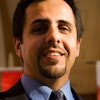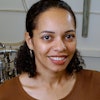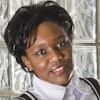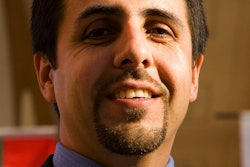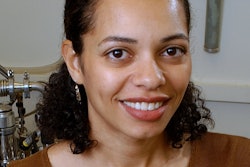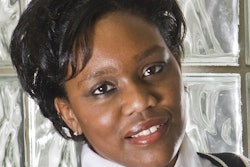At the start of each semester, the first thing Dr. Ahna Skop wants to know from her genetics students is if they know how to cook.
“The best advice I ever received was ‘never trust a scientist who can’t cook,’” Skop says. “Cooking is what we do in a lab. Each experiment is a recipe.”
Cooking is more than a metaphor for this highly respected geneticist. During her graduate studies she, like many uncertain students, decided she should have a back-up plan in case a career in science was not to be. “I am dyslexic. I do terribly on tests, and my failed tests were evidence that maybe I should not be in science,” she says. “I decided, since I love to cook, I would be a chef.”
But in fact, a career as a geneticist was in the recipe cards for Skop. Since accepting a tenure-track position at the University of Wisconsin-Madison three years ago, Skop’s research on cell division has been widely recognized. In November, she was one of 20 scientists to win the National Science Foundation’s Presidential Early Career Awards for Scientists and Engineers. Skop was honored for her groundbreaking research on finding links between how animal and plant cells divide. Understanding how and why cells divide is critical to finding cures for cancer and other diseases.
“We had a need for expertise in this area,” says Dr. Michael R. Culbertson, chair of the UW School of Medicine and Public Health/College of Agricultural & Life Sciences. “Ahna fit the bill perfectly because of her unique expertise in the emerging area of genetics called proteomics, which makes use of novel approaches to identify proteins involved in cellular processes.”
Skop attributes her success to possessing a driving need to be creative. “There is a huge amount of creativity in science,” she says. Skop likes to visualize her lab work from a painter’s perspective by recreating cells and amoebas on her computer. She calls it the “beauty of biology,” and every other year she curates the C. elegans Art Show at the International C. elegans Meeting, sponsored by the Genetics Society of America.
Her parents, who are both teachers and artists, nurtured that creative spirit. Skop, the oldest of four children, recalls growing up in a Kentucky household that was filled with student artists. Though she knew she had an artistic interest and talent, it was science that caught her imagination.
“My parents would drive us across the Kentucky border into Cincinnati and drop us off at the library,” she says. “They would show us where the science journals were located, give us ice cream money and bus fare to get home at the end of the day.”
Developing research skills early in life led Skop to explore the veracity of an old generational myth — having American Indian blood in the family tree. During her undergrad years she researched and put together a genetic lineage with definite links to the Eastern Cherokee tribe of North Carolina. As one of only a few American Indian assistant professors in the country working at a top 50 research institution, Skop is committed to reaching out to young Native students. She often hosts visiting Native high school students in her lab. She is actively involved with the local campus chapter of the American Indian Science and Engineering Society, as well the Society for Advancement of Chicanos and Native Americans in Science.
Proximity to tight-knit communities was paramount to her career in academia. After finishing her postdoctoral work at UC-Berkeley, Skop decided she wanted to get out of the fast-paced Bay area and return to Wisconsin.
“I had a lot of offers, but I missed the Madison community. I was never a big city girl,” she says. “And the UW is a great place for research. My department is one of the best in the country. I couldn’t pass it up.”
Title: Assistant Professor of Genetics and Medical Genetics, University of Wisconsin-Madison
Education: Postdoctoral research, University of California Berkeley, Department of Molecular and Cell Biology; Ph.D., Cell and Molecular Biology, University of Wisconsin-Madison; B.S., Biology, Syracuse University


